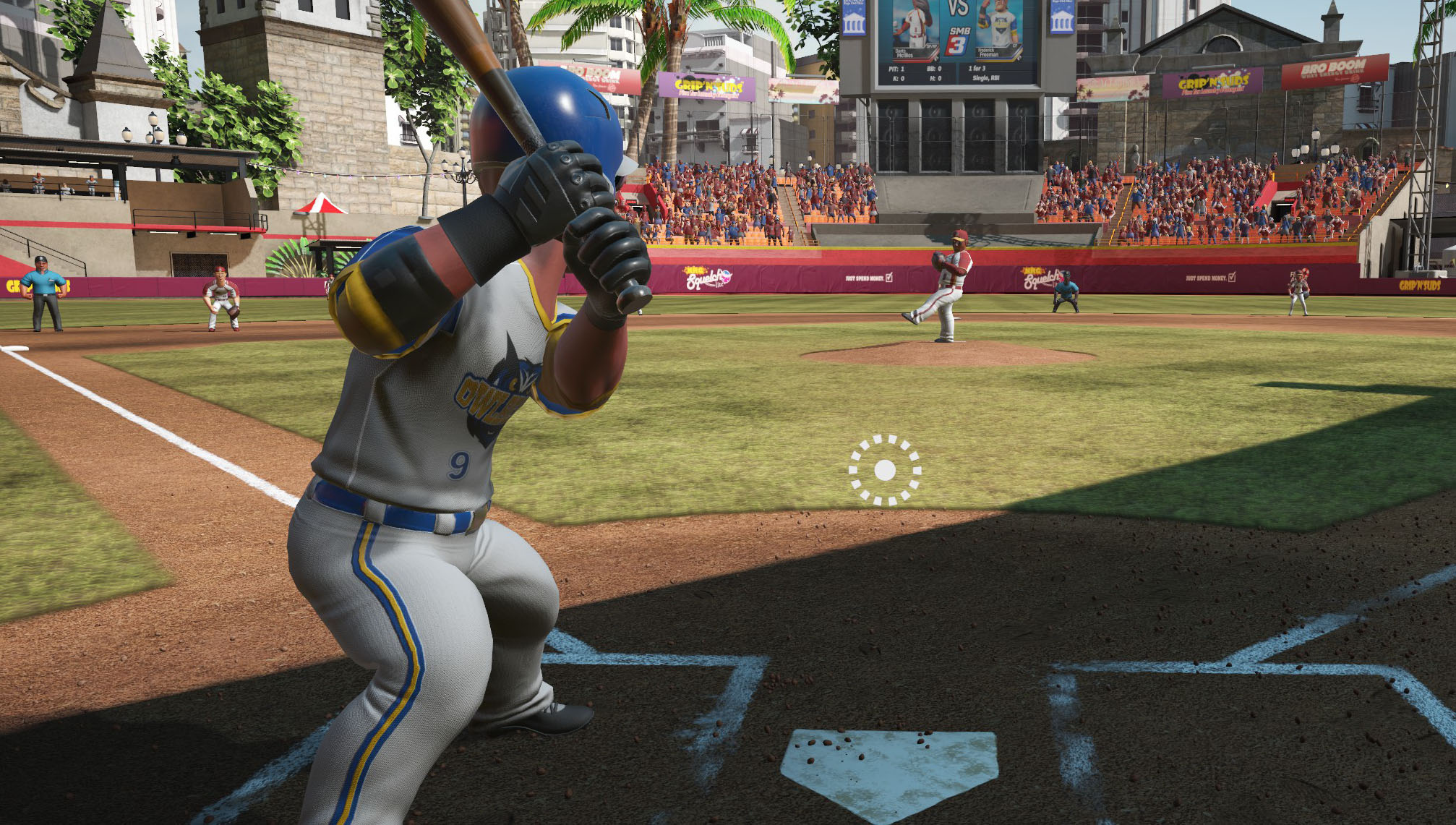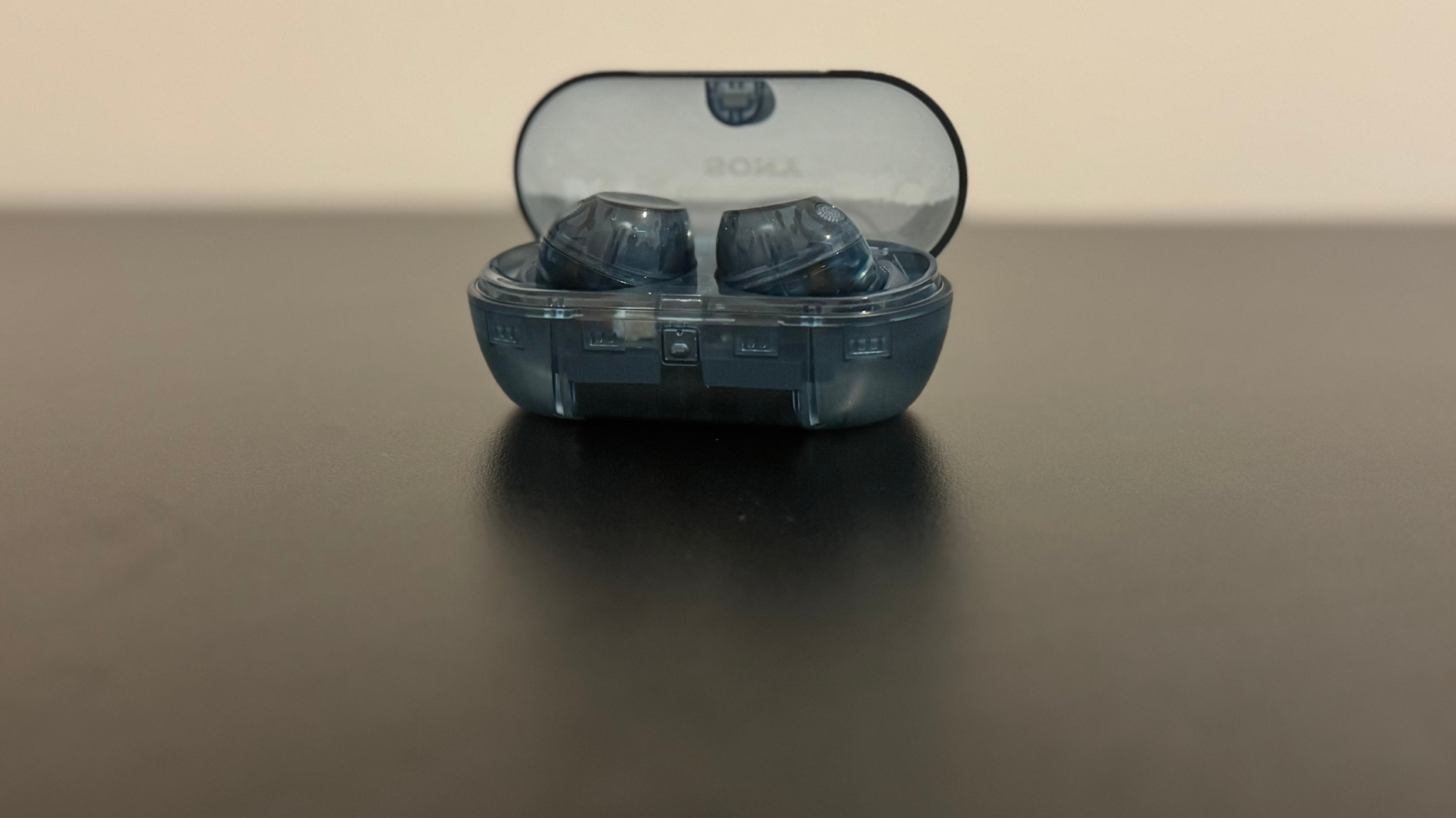Our Verdict
The excellent franchise mode adds loads of depth and decision making, and on-field play is livelier than ever.
PC Gamer's got your back
Third baseman Bobby Bashe steps into the box, tapping home plate with the tip of his bat hard enough to make the camera shake. All season long, Bashe has been my best base-stealer (despite his chunky body) and one of the league's leading home run hitters, capable of turning a close game into a rout with one big swing. I don't know what I'd do without him on my roster, but I'm about to find out—this is the last game of his career.
The managerial aspects of the Super Mega Baseball series have always been weak, mostly limiting you to mulling over pitching changes and pinch hitters. But the outstanding new franchise mode in Super Mega Baseball 3 lets you tinker with your roster over multiple seasons, wrestle with a salary cap, and presents you with far more situational decisions during individual games, as well as players like Bashe, who I'll get to. Combined with several new on-field systems, Super Mega Baseball 3 has added lots of depth and careful decision-making both on and off the field, while still preserving the cartoony arcade fun of the earlier games.
You can't trade directly with other teams in franchise mode, but you can sign free agents, kick players off your team, and best of all, develop your players' skills and attributes over time. During the offseason, young players join the league and older veterans leave it—which is how I lose Bobby Bashe. At the end of my season he just straight-up retires at age 38, done with baseball for good. While that's a major bummer for me (I'm honestly kind of heartbroken to see him go) at least now I get the fun of hunting through free-agency for his replacement with the $7.5 million his retirement frees up.
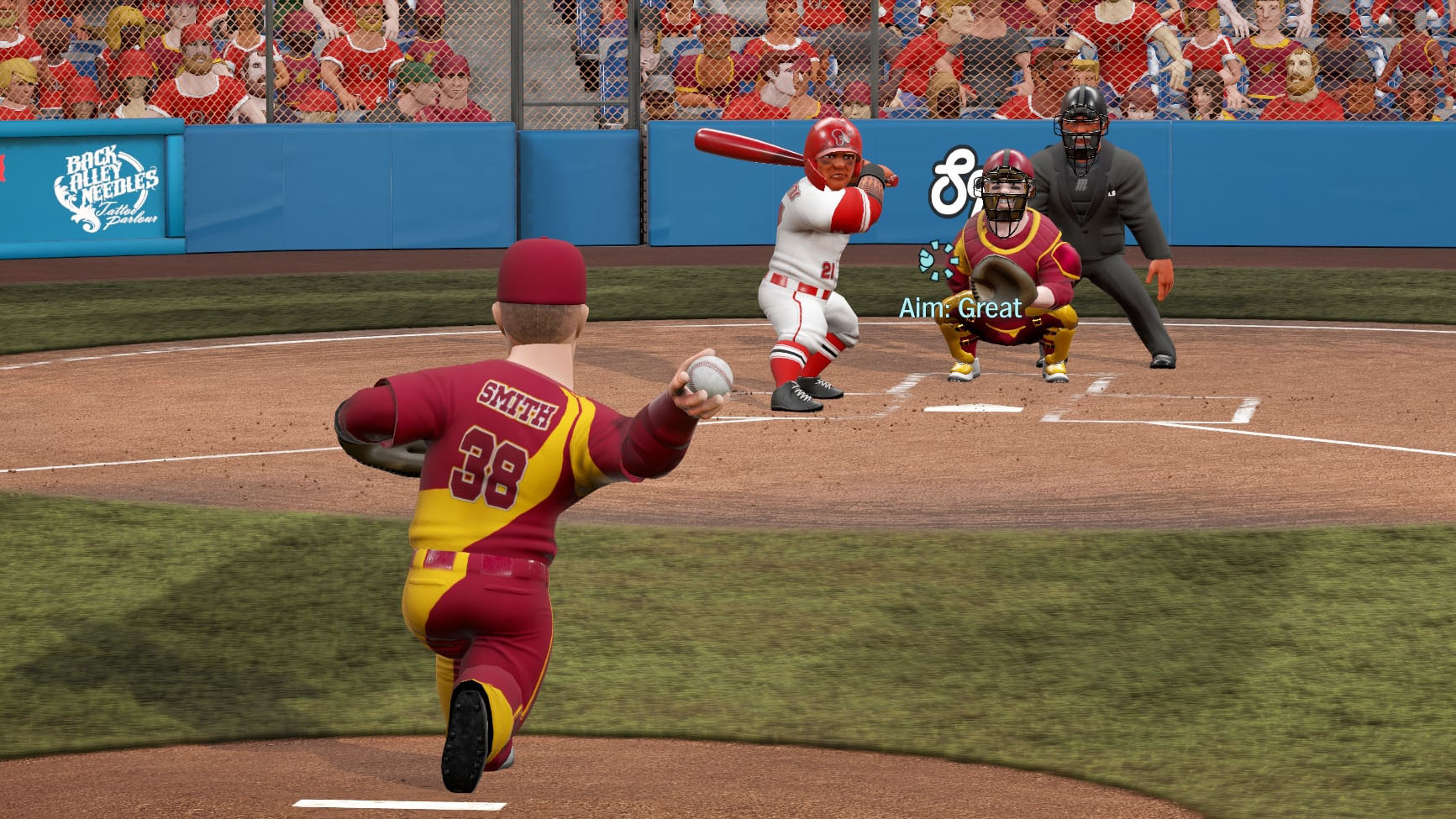
After each game in franchise mode you're shown a handful of players eligible for development, and you can spend cash to tinker with their skills: add a few points of hitting power, for example, or give a pitcher a bit more accuracy or velocity, sometimes at the cost of losing a few points from another skill. There's also a small chance a player will develop a situational trait during development.
Traits can be good, like increasing the chance of contact when batting against left-handed pitchers, or bad, like a pitcher losing a bit of accuracy when they fall behind in the count. These attributes are small tweaks to a player's abilities in specific situations, but they make a big impact on the managerial side of things. I'll sub in a particular batter during a situation they've got a helpful attribute for, or take a pitcher out early if they're facing a slugger with an attribute that works against them. It makes me feel like a real manager, yanking a guy because he's not great against southpaws, or running up the pitch count against a hurler who loses a bit off his fastball when he's nervous.
Player development also goes a long way toward giving your team some continuity and personality. I decided to spend big on an A+ slugger for my franchise team, The Owlbears, signing him for a whopping $30 million, but he never lived up to his promise due to frequent injuries. Game after game, I grew more and more irritated that I was paying so much for the dude to sit on the bench nursing his hurt finger. This guy cost three times as much as Bobby Bashe and gave me half his production! I finally released him mid-season, using his salary to shore up my bullpen instead.
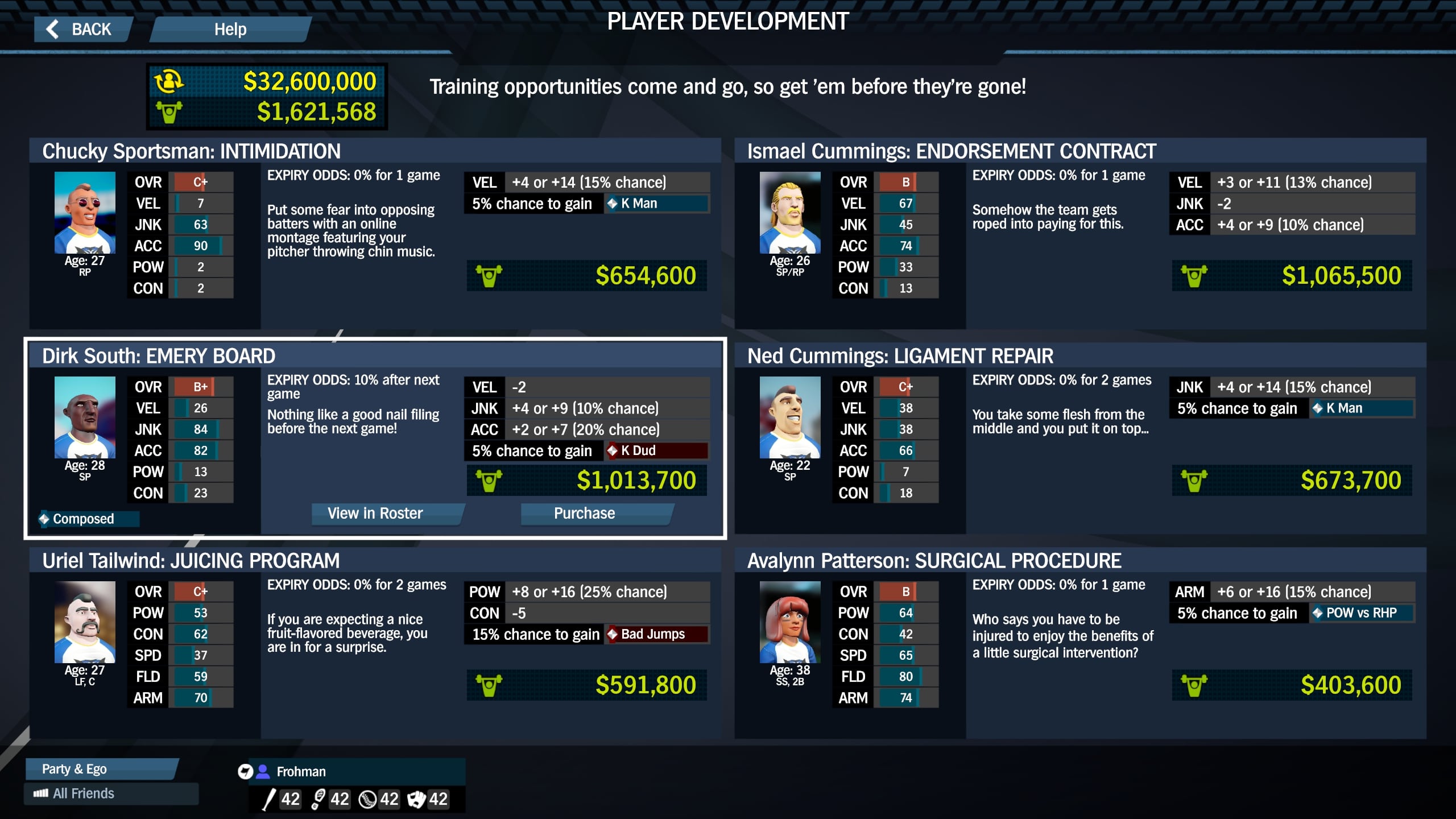
And that's when I signed a young starting pitcher, Ned Cummings, at just age 20. He was a real rookie, tagged with a C- rating, little velocity to his pitches, not much accuracy, and he could only go a few innings before losing stamina and becoming rattled. But over the season I've spent some cash to improve his arm a few times.
He's now a C+ player, which still isn't great—but he's lasting more innings in games and his salary is still dirt cheap. I plan to keep developing young Ned and someday, seasons from now, maybe he'll become a star. The dream of taking a ragtag collection of marginally talented players and developing them into a contender, just like in the movies, is real in SMB3.
The on-field baseball sim has developed and deepened as well. It's even more lively than in previous games thanks to the addition of wild pitches, passed balls, and dropped third strikes. In an average game there are more surprises and sudden scrambles for the ball, and a more robust base-stealing and pickoff system keeps me eyeing the baserunners instead of only focusing on the batter while I'm on the mound.
I'm guessing I'm one of the very few who prefers to play with a mouse and keyboard over a controller, but I'm happy a lot of attention has been paid to M&K controls, with most of them nicely grouped into the WASD and QE keys, making it almost as intuitive as using a controller.
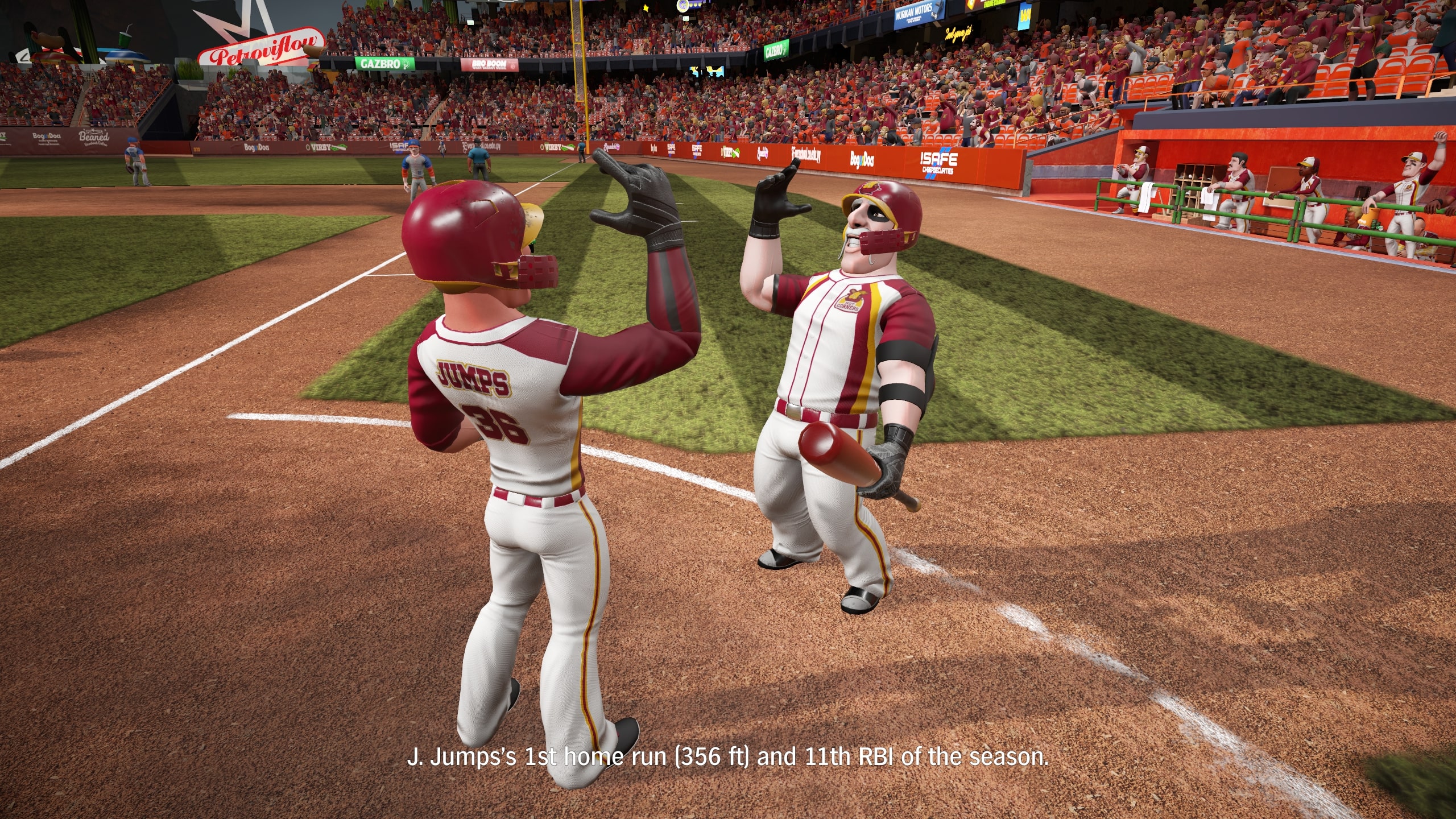
Online play, which arrived with SMB2, returns again with the excellent Pennant Race mode, and you can also play one-off games or custom tournaments against your friends. And once again everything in SMB3 is customizable: the divisional structure of your league, the length of games and duration of the season, right down to your player's looks and uniforms and the team logo. Go Owlbears!
Super Mega Baseball 3 is the series at its best. The on-field baseball sim is livelier than ever, and player development, attributes, and free agency gives you some real managerial decisions to make both on the field, over the course of a season or season, and even during the offseason. SMB 3 may superficially look about the same as SMB2, but it's a whole new ballgame.
The excellent franchise mode adds loads of depth and decision making, and on-field play is livelier than ever.

Chris started playing PC games in the 1980s, started writing about them in the early 2000s, and (finally) started getting paid to write about them in the late 2000s. Following a few years as a regular freelancer, PC Gamer hired him in 2014, probably so he'd stop emailing them asking for more work. Chris has a love-hate relationship with survival games and an unhealthy fascination with the inner lives of NPCs. He's also a fan of offbeat simulation games, mods, and ignoring storylines in RPGs so he can make up his own.
